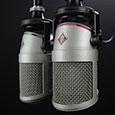The growing popularity of all things tight, toned and beautiful, personal trainers are moving in droves to set up gyms and become their own boss.
If you have developed a devoted group of clients, either through employment at a larger gym, or through freelancing, it may be possible to self-fund the launching of your gym, especially if you start out small.
There is no doubt that one of the biggest financial hurdles to clear when launching your own gym is acquiring equipment. When doing this, there are two main ways to finance such equipment: outright purchasing, or leasing the items.
The superior financing option depends on your current situation, the type of gym you want to open, and your longer term goals. Here are what you should consider when deciding whether to purchase or lease gym equipment.
How much capital do I have?
This should be the first question when thinking about how to finance your gym. If you do not have enough initial capital to buy the equipment you need outright, then leasing (or taking out a loan) will be the only option available to you.
Budgeting here is key. Spending all your capital on equipment, only to have little left-over to promote your services will end in disaster. Unless you have a lot of financial backing, either from your own pocket or from a third party) it is probably worth leasing the more expensive items in your gym until you have a consistently healthy stream of monthly income.
Always budget conservatively, especially when you are starting out, and accept that traction generally takes longer than you expect.
What type of gym do I want to set up?
A big reason behind the popularity of leasing gym equipment is that it gives owners access to top of the line equipment that they could not otherwise afford. Furthermore, leasing gives you greater flexibility to upgrade your equipment quickly. In some markets, being able to upgrade and switch out equipment at short notice can be the competitive difference between yourself and the other gyms in the area.
That being said, not all gyms will benefit that much from constantly having the flashiest equipment. Sure, all gyms need equipment that is durable and safe to use, but if your focus is on weight training, HIIT, and close relationships between trainer and client, it may not be worth the additional cost just to get your hands on the latest machines.
It’s all about the market you serve, and what they want. If you are looking for clients who have higher average incomes, but perhaps a more casual approach to the gym, seeing it as a luxury rather than a lifestyle, then leasing out the flashiest equipment may be the only way to survive. Daily gym goers, especially those into bodybuilding, tend to eschew machines and prefer an old-school style, in which case purchasing high-quality but simple equipment will be the most profitable route.
What type of business do you want to run?
In the vast majority of cases, purchasing outright will be cheaper than leasing. Therefore if you are looking to run a gym that pays you as much money as possible as fast as possible, than purchasing the equipment will allow you to do so. Bear in mind that this strategy will only work if you either already have a network of clients, or have the remaining budget and authority to build a client list capable of plugging up the blow to cash-flow caused by your purchases.
Leasing your equipment, on the other hand frees up cashflow, allowing you to invest in marketing, additional staff, renovations and other necessities to grow your gym. If you are looking to take a more long term approach with your gym business, and are looking to perhaps grow into multiple locations or compete directly with the big-boys, then leasing equipment will more likely facilitate such a plan.
The fact that leasing also gives you access to the most expensive equipment also compliments a strategy based around growth rather than immediate profit. Top of the line equipment can be used to help market your gym and make it seem like a large operation, even when you are only just starting out.
It is well worth remembering that the decision to purchase or lease gym equipment will have to have an impact on your eventual exit plan. If you own the equipment, it will likely raise the value of your gym if you look to sell, as each piece of equipment is an asset. The only exception to this is if the equipment in question is in such poor condition that it is unusable for a future owner. Leased equipment is a liability, so will lower the sale value of your gym as new owners will have to take on that payment. You may be able to overcome this problem by taking out a lease which allows you the option to purchase when the lease runs out.
- 0share
- 0Facebook
- 0Twitter
- 0Pinterest
- 0LinkedIn
James Taylor
Latest posts by James Taylor
- To rent or buy equipment: A Dilemma for Gym Owners - December 26, 2019















